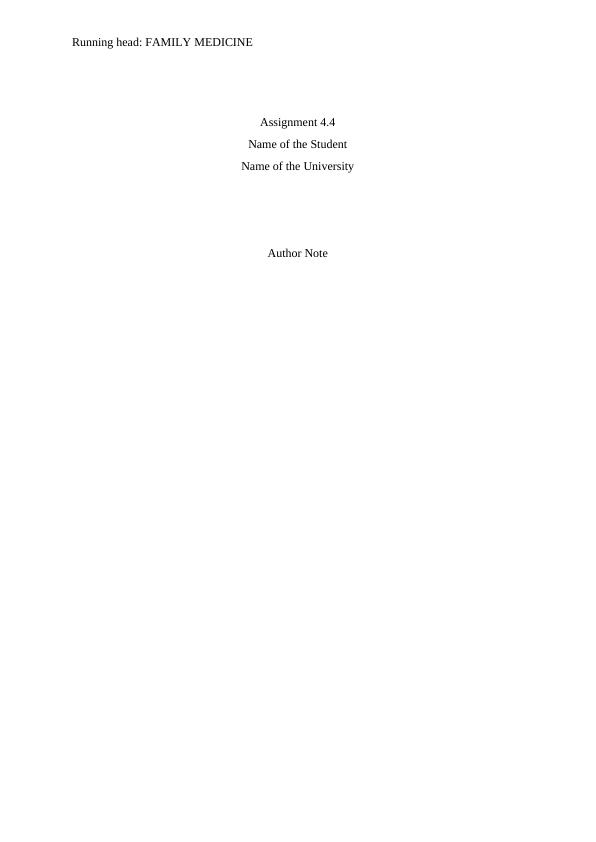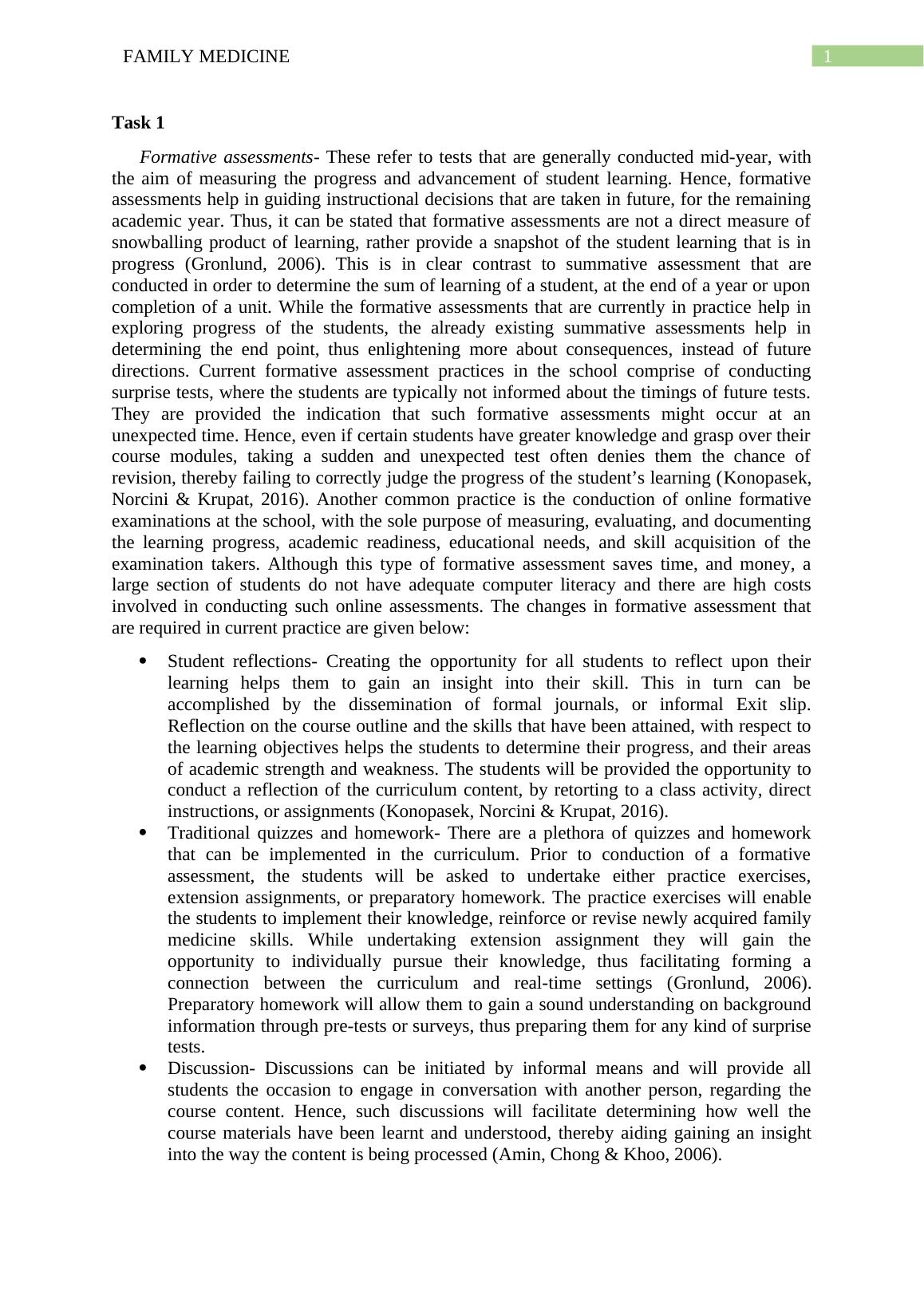Improving Formative Assessments in Family Medicine: Strategies for Measuring Student Progress
Performance assessment of psychomotor and affective domains in medical education.
5 Pages1980 Words297 Views
Added on 2023-04-25
About This Document
In this assessment we will discuss about family medicine and below are the summaries point:-
-
Formative assessments measure ongoing student learning progress and guide future instructional decisions.
-
Current formative assessment practices include surprise tests and online exams, but they have limitations.
-
Changes needed in formative assessment practices include student reflections, traditional quizzes, and preparatory homework.
Improving Formative Assessments in Family Medicine: Strategies for Measuring Student Progress
Performance assessment of psychomotor and affective domains in medical education.
Added on 2023-04-25
ShareRelated Documents
End of preview
Want to access all the pages? Upload your documents or become a member.
Assessment in Mathematics 2022
|5
|1280
|22
Compare and Contrast Between Classroom and Online Applications
|10
|2336
|362
Assignment: Teaching, Learning and Assessment in Education and Training
|5
|1204
|261
The Role of Formative Assessments in Improving Student Learning
|21
|5909
|125
Summative and Formative Assessment
|13
|3940
|331
Employer Mascot Steel Assessment
|30
|8089
|21


